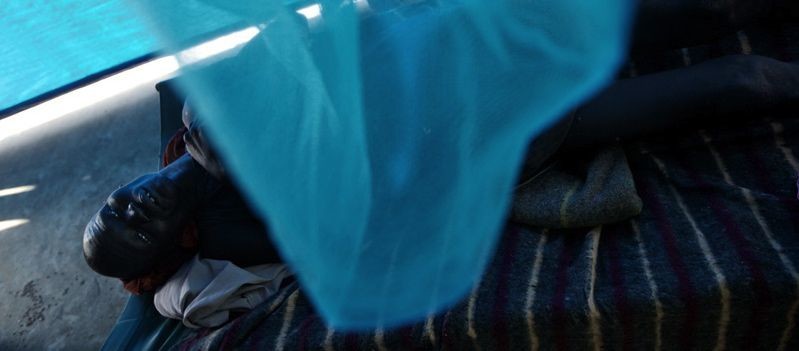The medical humanitarian organisation Médecins Sans Frontières/Doctors without Borders (MSF) is treating increased numbers of kala azar patients in Upper Nile State and in the northern part of Jonglei State of South Sudan.
In northern Jonglei’s Lankien health facility alone, MSF teams have treated nearly 360 kala azar patients in October 2013, higher than the last major peak of 2010.
“A greater percentage of the new patients we have admitted for kala azar in the past three months are children, most of whom are malnourished. We are also treating adults, but our main concern now is that most patients are arriving late to the clinic, especially those coming from far away locations,” says Alison Buchanan, MSF’s kala azar specialist in Lankien.
To respond to this situation, MSF has set up treatment centres in eight locations in northern Jonglei, and support the Teaching Hospital of Malakal, the capital of Upper Nile State.
“Together with the Ministry of Health and other health agencies, the current strategy is to bring diagnostic and treatment services closer to the communities to improve access, facilitate early diagnosis and treatment and thereby save lives”, said Raphael Gorgeu, MSF Head of Mission in South Sudan.
With a limited number of health facilities, no other means of transport, and inaccessible roads, many patients suffering from kala azar are forced to walk long distances to access treatment, with some arriving late, and often in terrible condition.
Chool Jock, a 24 year-old woman, too weak to walk, was carried on a stretcher by her family members to the MSF hospital in Lankien. They walked for 12 hours.
“The journey is long, and not safe, so I waited for my brothers to take me to the hospital. As two of us were sick in the family, my younger sister in a worse condition than I, she got the first priority, and then they later came back for me,” Chool explained.
“These patients know of no other medical facilities around here. They need to know where else they can seek treatment, so that they reach us earlier,” adds Alison.
MSF operation is planned to continue up to end of February 2014, which should coincide with a significant decrease of cases, and is expected to treat in total more than 1500 patients.
Characterised by swollen spleen, high fever, and anaemia, Kala azar, or visceral leishmaniasis, is a parasitic disease transmitted by the bite of a sand fly. It is endemic in most parts of Jonglei state. Without treatment, nearly all patients die. Kala azar is endemic in 76 countries, putting approximately 200 million people at risk of infection.
(Source: MSF)
File photo: (Stanmeyer/MSF)



